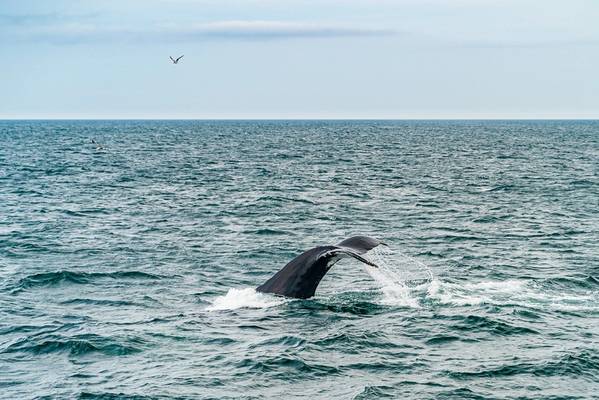
The EnerGeo Alliance has sent a letter to New Jersey Governor Philip Murphy and Assemblyman Christopher Tully, Chairman of the state’s Committee on Science, Innovation and Technology in advance of the Assembly’s hearing on marine mammal deaths scheduled for Thursday May 18, 2023.
There have been at least 11 whales that have washed up dead along New Jersey's coastline since December 5, prompting concern that they are related to offshore wind development in the region.
The Alliance says it aims to address misconceptions that offshore wind geoscience surveys have contributed to marine mammal deaths on New Jersey’s shore and the Atlantic Coast. The letter claims there is no link between seismic and other geoscience surveys for offshore wind projects and recent marine mammal deaths and includes historical evidence showing that geoscience surveys have been conducted extensively for over six decades around the world without any direct harm to marine mammal populations.
The following statements come from the letter written by EnerGeo Alliance President Nikki Martin:
“The marine mammal deaths in New Jersey are a tragedy, but we will have failed ourselves and the Atlantic’s marine mammals if we do not study what has happened thoroughly and impartially. EnerGeo stands ready to work together and provide its expertise to support any efforts that prioritize facts, science, and the best available data to determine what happened, why, and how, so we can better protect marine mammal populations.”
“It is important here to note that the independent federal body charged with protecting the animals, the Marine Mammal Commission, recently stated that, ‘Despite several reports in the media, there is no evidence to link these strandings to offshore wind energy development.’ It further described the deaths as, ‘not new, nor are they unique to the U.S. Atlantic coast.’ For example, over 180 humpback whales have stranded along the East Coast since 2016, with 10 or more humpback whales beached each year since then, peaking at 34 in 2017. Offshore wind surveys weren’t operating during almost all of that period. Those whales which underwent post-mortems were killed by vessel strikes or fishing gear entanglement, or the cause could not be determined. The Atlantic waters near where the whales washed ashore have some of the nation’s heaviest ship traffic, heading in and out of the ports of New York and New Jersey and Newark.
“Further, significant funding has gone into research regarding marine mammal interaction with sound, including that from seismic surveys. The BOEM has spent more than $50 million on protected species and noise‐related research without finding evidence of adverse effects. The geoscience and petroleum & natural gas industries, the National Science Foundation, the U.S. Navy, and others have spent a comparable amount on researching potential impacts of seismic surveys on marine life and have found no evidence of adverse effects…As New Jersey and the nation look to develop alternative energies offshore in response to carbon reduction policy goals, geoscience activities are integral to achieving those goals.”